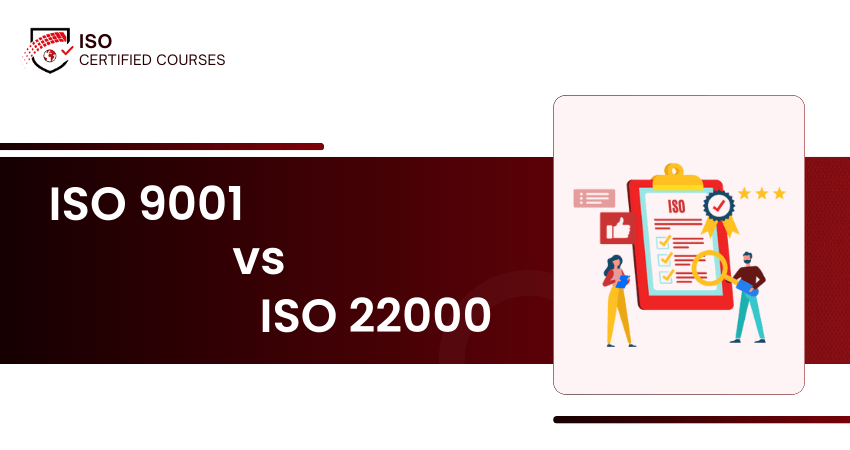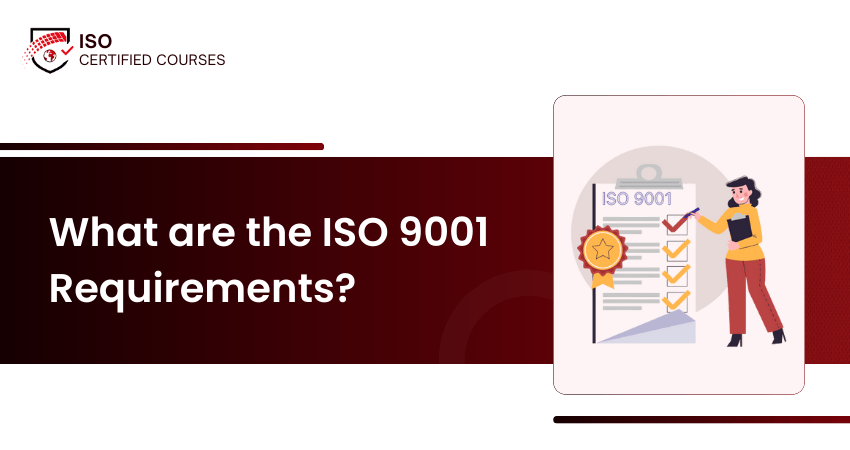ISO 17025 Lead Auditor Training Overview
The ISO 17025 Foundation Course introduces the essential requirements for laboratory competence and quality systems. Learners gain a foundational understanding of ISO 17025 principles, including impartiality, traceability, documentation, and the management of testing and calibration processes.
Key Topics Covered
Introduction to ISO 17025: Purpose, scope, and structure
Laboratory Management Principles: Competence, impartiality, and decision rules
Documentation and Control: Procedures, quality manuals, and records
Equipment and Method Validity: Traceability and calibration requirements
Internal Audits and Non-conformities: Monitoring, reporting, and corrective actions
Course Benefits
Quality Awareness: Understand the standards behind laboratory quality systems
Career Entry: Ideal for Lab Technicians, QA Assistants, and Technical Staff
Real-World Relevance: Examples based on actual testing and calibration workflows
Standard Alignment: Provides a solid base for further ISO 17025 Auditor Training
The ISO 17025 Lead Auditor Course equips professionals with the expertise to lead and perform audits of testing and calibration laboratories, ensuring compliance with ISO 17025 standards. This training is profitable for various professionals, including:
Lead Auditors
Quality Managers
Laboratory Managers
Quality Assurance Officers
Technical Experts
Auditors
Process Improvement Professionals
Consultants

ISO 17025 Lead Auditor Training Outline
Module 1: Introduction to ISO 17025
- ISO
- ISO 17025
Module 2: Requirements of ISO 17025
- Overview
- Requirements of ISO 17025
Module 3: Relationship between ISO 19011 and ISO 17025
- ISO 19011
- Relationship between ISO 19011 and ISO 17025
Module 4: Scope
- Overview
- Scope of ISO 17025
Module 5: Normative References
- Introduction to Normative References
Module 6: Terms and Definitions
- Overview
- Terms and Definitions
Module 7: General Requirements
- Overview
- Impartiality
- Confidentiality
Module 8: Structural Requirements
- Overview of Structural Requirements
Module 9: Resource Requirements
- General
- Personnel
- Facilities and Environmental Conditions
- Equipment
- Metrological Traceability
- Externally Provided Products and Services
Module 10: Process Requirements
- Introduction to Process Requirements
- Review - Requests, Tenders, and Contracts
- Selection, Verification, and Validation of Methods
- Sampling
- Handling Test or Calibration Items
- Technical Records
- Evaluation of Measurement Uncertainty
- Ensuring Result Validity
- Reporting of Results
- Complaints
- Nonconforming Work
- Control of Data and Information Management
Module 11: Management System Requirements
- Options
- General
Module 12: Management System Documentation
- Overview
- Document Categories
Module 13: Control Management System Documents
- Overview
- Primary Document Control Requirements in the ISO 17025 Standard
Module 14: Control of Records
- Overview
Module 15: Address Risks and Opportunities
- Overview of Address Risks and Opportunities
Module 16: Improvement
- Overview of Improvement
Module 17: Corrective Actions
- Steps to Take Corrective Actions
Module 18: Internal Audit and Management Reviews
- Internal Audit
- Management Reviews
Module 19: Terminology – ISO 9000, VIM etc
- ISO 9000 Terminology in English
Module 20: Fundamental Audit Concepts and Principles
- Overview
Module 21: Auditing Requirements and Assessment: ISO 17011:2017, ISO 19011:2018
- Auditing: ISO 17011:2017
- Auditing: ISO 19011:2018
Module 22: Recognition and Oversight of ILAC, IAAC, APLAC
- Description of ILAC
- ILAC’s Global Role
- Abbreviations
- ILAC Documents
- ILAC P10 Traceability Policy
Module 23: Test Reports, AB Symbols, Equipment Stickers, Certificates
- AB Symbols
- Certificates
- Certificate Naming Convention
Module 24: Clauses 4, 5, and 6 Review
- Clause 4: General Requirements
- Clause 5: Structural Requirements
- Clause 6: Resource Requirements
Module 25: Clauses 7 and 8 Review
- Case studies on clauses 7 and 8
Module 26: Guidelines for Auditing: ISO 19011
- ISO 19011 Auditing Guidelines
Module 27: GUM (Uncertainty), PT/ILC, and Traceability
- GUM (Uncertainty)
- PT/ILC
- Traceability
Module 28: Opening and Closing Meeting Activities
- Opening Meeting
- Closing Meeting
Module 29: Auditing Technical Methods
- Overview
Module 30: Reporting Audit Results
- Internal Audit Report
Module 31: Audit Checklists and Audit Reports
- ISO 17025:2017 Audit Checklist for Laboratory Accreditation System Requirements
- Content of ISO/IEC 17025:2017 Audit Checklists
Module 32: Review of Standards and Internal Auditing Issues
- Review of Standards
- Internal Auditing Issues
Module 33: Introduction to Lab Management System
- Standards and Regulatory Frameworks
- Laboratory Management Systems
- Laboratories and Accreditation Fundamental Principles
- Testing and Calibration Concepts
Module 34: Planning LMS Implementation
- Leadership and LMS Project Approval
- Scope of LMS
- Laboratory Policies
- Organisational Structure
- Document Management Process
Module 35: Implementing an LMS
- Design of Controls
- Drafting of Specific Policies and Procedures
- Communication Planning
- Training and Awareness Planning
- Resource Management
- Customer Management
- Operations Management
Module 36: LMS Monitoring, Measurement, and Continuous Improvement
- Monitoring, Analysis, and Evaluation
- Treating Problems and Nonconformities
- Continual Improvement
- Accreditation Preparation
- Implementers Evaluation
Module 37: Planning an ISO 17025 Audit
- Audit Approach
- Preparing the ISO 17025 Audit
- Conducting an Opening Meeting
Module 38: Conducting the ISO 17025 Audit
- Communication during Audit
- Audit Procedures
- Observation
- Document Review
- Interview
- Sampling Techniques
- Technical Verification
- Corroboration and Evaluation
- Audit Test Plans
- Formulation of Audit Findings
- Documenting Nonconformities
Module 39: Concluding and Follow-Up of ISO 17025 Audits
- Audit Documentation
- Quality Review
- Closing Meeting
- Evaluation of Corrective Action Plans
- ISO 17025 Surveillance Audits
- ISO 17025 Internal Audit Management Program

What You’ll Learn in this Course
By the end of the course, learners will be able to:
- Explain the purpose and benefits of ISO 17025
- Understand competence requirements for testing and calibration laboratories
- Identify documentation and control system essentials
- Recognise the roles of traceability, validation, and measurement uncertainty
- Support the implementation or maintenance of ISO 17025 systems

What’s Included
ISO 17025 Lead Auditor Examination
World-Class Training Sessions from Experienced Instructors
ISO 17025 Lead Auditor Certificate
Digital Delegate Pack
ISO 17025 Lead Auditor Training Exam Details
To achieve the ISO 17025 Lead Auditor, candidates will need to sit for an examination. The exam format is as follows:
Question Type: Multiple Choice
Total Questions: 30
Total Marks: 30 Marks
Pass Mark: 50%, or 15/30 Marks
Duration: 40 Minutes
Open Book/ Closed Book: Closed Book

Individual Training
Boost your expertise with our Individual Training, tailored for professionals seeking ISO knowledge at their own pace. Learn core standards, industry best practices, and implementation skills from certified experts.
Corporate Training
Empower your teams with our Corporate Training solutions, designed to align ISO standards with your organisational goals. Ensure compliance, boost efficiency, and build a culture of continuous improvement across your workforce.
Our Upcoming Sessions
- Online Instructor-Led
- Online Self-Paced
- Classroom
- Onsite
Boost Your Career with ISO Training
Average salary boost for professionals with our ISO Training in compliance and standards roles
85%Learners begin roles in quality assurance, compliance, or audit after completing our ISO Courses
90% Compliance Readiness
Organisations report enhanced operational efficiency and preparedness following our ISO Training for employees
-
Manufacturing and Production
-
Energy and Utilities
-
Construction and Infrastructure
-
Waste Management and Recycling
-
Information Technology and Information Security
-
Public Sector and Environmental Services
Our Immersive Learning Solution
Hands-On Learning Experience
Engage with real-world scenarios, interactive tasks, and simulations that bridge theory and practical application.
Expert-Led Delivery
Learn from seasoned professionals with deep industry experience and insight into ISO standards and beyond.
Flexible Learning Formats
Choose from Online Instructor-Led, Online Self-Paced, or Classroom sessions designed to suit your pace and preferences.
Customised Content
Training aligned with your sector, goals, and challenges, ensuring relevant, targeted learning every time.
Empowering Growth with Tailored Training Solutions
We help organisations equip their teams with the skills and knowledge needed to consistently meet industry standards. Our corporate training is designed around your specific operational goals, ensuring alignment with the ISO framework.
With a strong focus on real-world application and measurable outcomes, each session drives practical capability and lasting improvement. By fostering standard-driven performance across all levels, we empower your workforce to contribute confidently and consistently to organisational success.
- Delivered by industry-certified trainers with hands-on experience
- Custom content aligned to your sector, standards, and strategy
- Flexible formats, including on-site, virtual, or blended, to suit your teams
On-Demand Access
Custom and Scalable Solutions
24x7 Support












Feedback From Our Clients
The ISO 9001 Internal Auditor Training gave me practical insight into quality systems and how to apply audit techniques effectively. The sessions were clear and approachable, even without prior auditing experience. I now feel confident reviewing documentation, identifying nonconformities, and contributing to continuous improvement. The real-world examples and audit scenarios helped me understand the practical side of compliance and how it fits into our daily operations.
Completing the ISO 45001 Foundation Training provided me with a solid understanding of occupational health and safety standards. The training clarified legal requirements, hazard identification, and risk control measures. I’ve applied this knowledge to improve our incident response protocols and reinforce safety culture within the team. It’s also made me more effective at communicating compliance expectations and supporting ongoing H&S initiatives.
The ISO 22301 Foundation Training helped deepen my knowledge of business continuity planning and risk preparedness. The course content was practical and focused on real implementation challenges, which I could immediately relate to my role. I now play a more active part in reviewing continuity plans and coordinating recovery strategies. The training has improved how we manage operational risks and strengthened our overall resilience.
I registered my team in the ISO 9001 Lead Implementer Training, and the improvements were visible right away. The training gave us the tools to standardise workflows, enhance documentation, and build a consistent quality management system. The team has taken ownership of processes and is now more proactive in identifying areas for improvement. It’s significantly enhanced how we align with best practices and deliver results with greater reliability.
Our team participated in the ISO 45001 Lead Auditor Training to reinforce our internal safety and compliance framework. The training not only improved our auditing skills but also helped us critically assess our workplace health and safety practices. We’ve since implemented stronger controls and improved reporting structures. The shift in awareness and engagement has been very positive, especially in high-risk areas.
Frequently Asked Questions
What is the ISO 17025 Lead Auditor Course about?
This course prepares learners to conduct and lead audits of
laboratory quality systems. It focuses on ISO 17025 principles, auditing
techniques, and how to evaluate technical competence and documentation in
testing and calibration labs.
Do I need experience before taking this course?
Yes, prior knowledge of ISO 17025 and basic audit concepts is recommended. This helps learners better engage with the audit process and practical scenarios covered during the training.
Who should attend this course?
This course is ideal for QA Managers, Laboratory Supervisors, Technical Auditors, and professionals responsible for ensuring compliance and competence in laboratory operations.
Does the course include practical audit simulations?
Yes, learners participate in case-based exercises and simulated audits that reflect real audit scenarios and improve decision-making and reporting skills.
What is the duration of the ISO 17025 Lead Auditor Course?
The course is delivered in 5 days and includes instructor-led sessions, practical auditing tasks, group discussions, and feedback on audit performance.








































